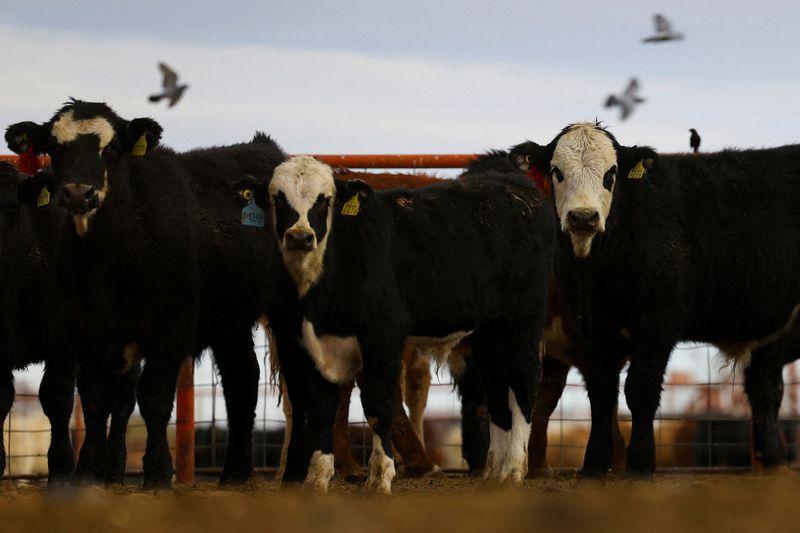USDA approves funds to fight screwworm, may resume Mexico cattle imports this year
By Tom Polansek
CHICAGO (Reuters) - The Biden administration approved a second round of emergency funding to block New World screwworm from entering the U.S. on Friday, a U.S. Department of Agriculture undersecretary told Reuters, after Washington suspended cattle imports from Mexico over the pest.
Some imports may resume as soon as this month, once Mexico implements new trade protocols, said Jenny Lester Moffitt, undersecretary for marketing and regulatory programs.
The agency is tapping $165 million from the Commodity Credit Corporation to bolster the fight against flesh-eating screwworm in Mexico and Central America, she said. It approved $109.8 million last year.
The U.S. is working to block the pest that has spread through Central America because it can infest livestock, wildlife and in rare cases, people. Maggots from screwworm flies burrow into the skin of living animals, causing serious and often fatal damage.
Mexico identified screwworm in a cow in a southern state near the Guatemalan border in November, prompting Washington to halt imports.
Lifting the suspension would remove a barrier for the U.S. agricultural sector, as farmers and consumers prepare for rising prices and supply-chain disruptions if President-elect Donald Trump follows through on plans to slap tariffs on goods from Mexico and Canada.
To resume shipments, Mexico must set up USDA-approved holding pens where inspectors will check and treat Mexican cattle for screwworm before they cross the border, Moffitt said. USDA will start inspecting Mexico's pens soon, she added.
"We could have some (imports) certainly before the holidays," Moffitt said, and more in January.
U.S. meat companies and cattle feeders are eager for trading to restart after drought slashed the nation's herd to its smallest size in decades.
"They're just holding their breath right now," said Ron Gill, a Texas A&M University livestock specialist.
USDA's funds will aid the production and dispersal of sterile screwworm flies in Central America, Moffitt said. A Panama-based facility increased production to about 95 million sterile flies a week from 20 million over the past year, she said.
Sterile male flies are bred to mate with fertile female flies, so the screwworm population decreases until it eventually dies out. USDA said it eradicated screwworm from the U.S. in 1966 using this technique.
Source: Investing.com
